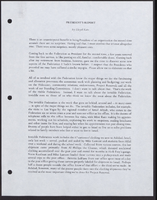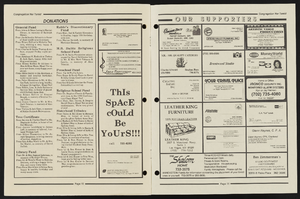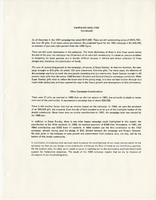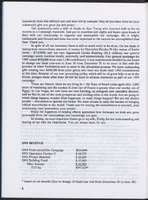Search the Special Collections and Archives Portal
Search Results
Arnold Shaw Papers
Identifier
Abstract
The Arnold Shaw papers (1927-2006) contain correspondence, newspaper articles, journal entries, promotional materials, and photographs. Shaw was a prolific writer and his papers also include articles, short stories, plays, and biographies written by him. In addition there are proofreader's notes, research material, and scratch copies for each of his fourteen books. The collection also contains papers from the various vocal groups and companies under contract with Shaw's music company, Mansion Music. Sheet music, some of which was written and produced by Shaw, assorted printed materials, and sound reels are also included.
Archival Collection

Tanya Olson oral history interview: transcript
Date
Archival Collection
Description
Oral history interview with Tanya Olson conducted by Claytee D. White on July 6, 2018 for the Remembering 1 October Oral History Project. In this interview, Olson recalls beginning October 2, 2017 to photograph scenes surrounding the aftermath of the shooting at the Route 91 Country Music Festival. Her efforts culminated in a film that highlights the Healing Garden, a memorial established after the shooting. It was dedicated on the first Friday of October 2017. Her 6-minute film, Forever In Our Hearts, is described as "Citizens unite to provide kindness and salve the wounds caused by the October 1, 2017 massacre during a Las Vegas country concert." The film was shown at the Nevada Women's Film Festival in 2018. Olson discusses beginning her latest endeavor, matriculating at the American Film Institute, a lifelong dream that she is pursuing after 23 years in the military, a film degree from University of Nevada, Las Vegas (UNLV), and completing her film project on one of the worst massacres in American history.
Text
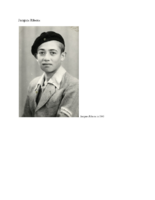
Biographical essay by Jacques Ribons, 2014
Date
Archival Collection
Description
Jacques Ribons describes his life during the Nazi occupation of Poland. During the liquidation of the Jewish ghetto, his family decided to turn themselves in to the Germans. They were sent to a prison and separated. He and his brother survived and went to France with the OSE, and came to the United States in 1947.
Text

Compositions by Raymonde Fiol, 2012
Date
Archival Collection
Description
Biography, essay and poem written and compiled by Raymonde Fiol, titled Pieces of My Life.
Text
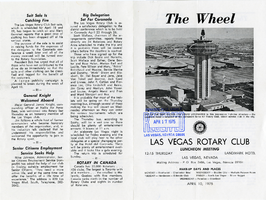
The Wheel Las Vegas Rotary Club newsletter, April 10, 1975
Date
Archival Collection
Description
Text
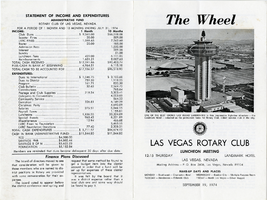
The Wheel Las Vegas Rotary Club newsletter, September 19, 1974
Date
Archival Collection
Description
Text

